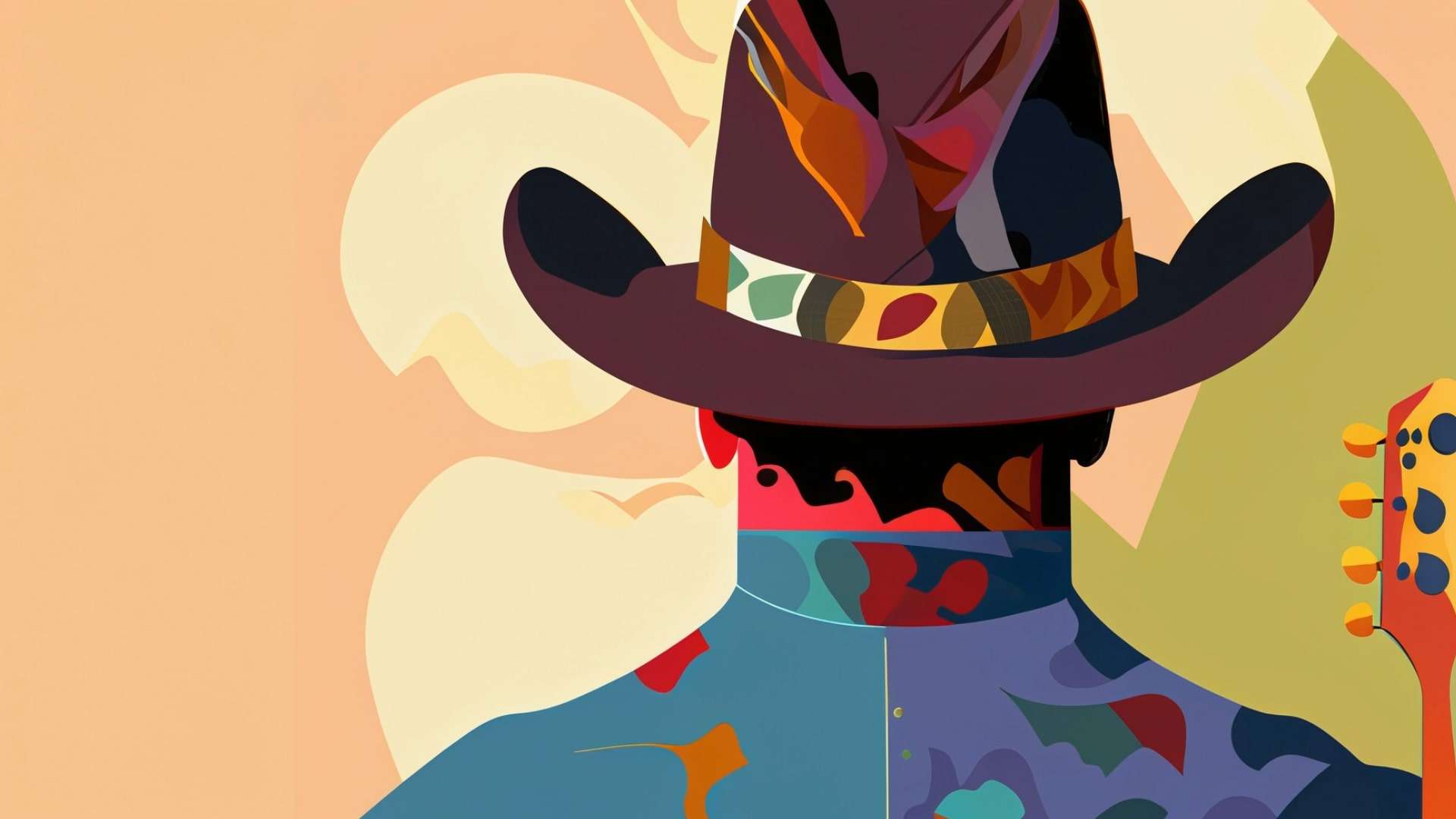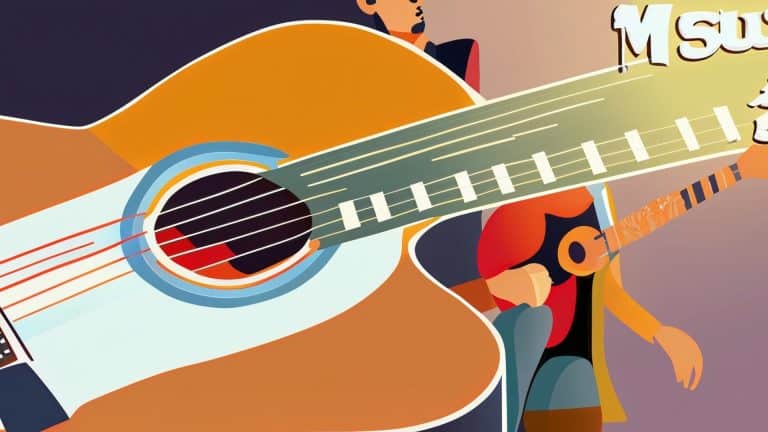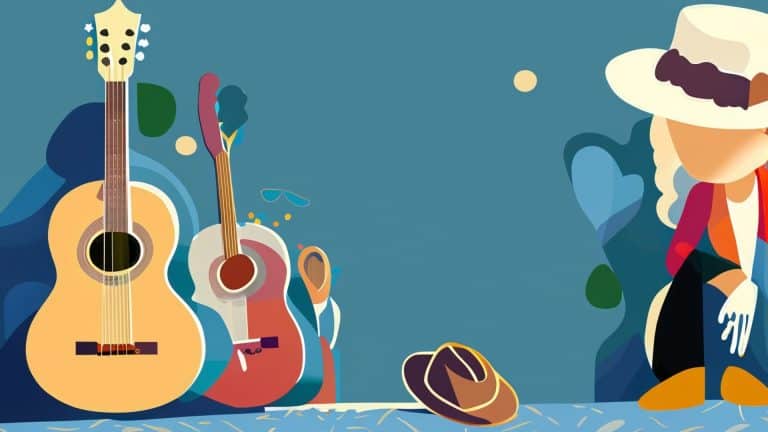From Outlaws to Legends: The Stories Behind Iconic Country Nicknames
Break out the grits and saddle up, y’all! We’re taking a ride through the colorful history of nicknames in country music. From the outlaw rebels who blazed new trails to the Grand Ole Opry legends who became icons, we’ll explore the tall tales and touching stories behind some of the genre’s most memorable monikers. It’s time to find out how your favorite country stars got their handle.
Kickin’ Up Dust: When Nicknames Entered the Country Scene
Nicknames have been around since country music first found its footing back in the 1920s and 30s. In the early days, nickname origins were simple – a play on an artist’s given name or a nod to their hometown. Jimmie Rodgers became “The Father of Country Music.” The Carter Family proudly repped their Clinch Mountain roots.
As country music evolved, so did the nicknames. They grew more creative and colorful, reflecting an artist’s personality or music. Many outlaw rebels forged their own paths – and their own aliases. By the time country music filled football stadiums and honky tonks with rhinestone flair in the 1960s, virtually every major star had a nickname.
Nicknames marked you as part of the country music family. Just look to the weekly show at the heart of it all: the Grand Ole Opry. When an artist got introduced by their nickname, it signified they had made it. From that moment on, their name and their brand were one.
The Outlaw Invasion: Rebels Who Wrote Their Own Rules
In the 1970-80s, a group of rabble-rousers changed country music forever. They played by their own rules and thumbed their noses at the Nashville status quo. Their bold new sound was outlaw country – and their nicknames perfectly matched their brazen style.
- Waylon “Hoss” Jennings: This towering Texan was nicknamed “Hoss” after the gentle giant character on TV’s Bonanza. But while the name evoked a lovable personality, Jennings could also be an outlaw, refusing to bow to record label rules.
- Willie “The Red Headed Stranger” Nelson: With his trademark braids and bandana, Nelson embodied the wandering spirit of the American West. His evocative album Red Headed Stranger cemented Nelson’s enigmatic, free-wheeling image.
- Johnny “The Man in Black” Cash: From his harsh upbringing to his wild ways, Cash identified with the downtrodden. He pioneered the gritty “hard country” sound and vowed to wear black until injustice ended.
- Kris “The Eagle” Kristofferson: A Rhodes Scholar turned Army Ranger turned janitor turned songwriting outlaw. With his searing lyrics and rebellious attitude, Kristofferson soared above the rest.
- Jessi “The Outlaw” Colter: Colter exploded onto the outlaw country scene with her smash hit “I’m Not Lisa.” Her trail-blazing spirit and sultry style inspired her rule-breaking nicknames.
Though short-lived, the powerful outlaw country movement left a permanent mark on Nashville and country music history.
Grand Ole Legends: Nicknames That Became Icons
As country music grew into a national phenomenon, the Grand Ole Opry propelled artists into bonafide stars. Opry nicknames signaled you had made it – achieving legend status for generations to come.
- Hank “The King” Snow: This Canadian country crooner became one of the Opry’s biggest early stars. With his rich voice and varied musical styles, Snow earned his royal nickname.
- Roy “The Singing Ranger” Rogers: Known as “The King of Cowboys”, Rogers personified the quintessential Western hero with his smooth voice and starring film roles.
- Minnie “The Queen of Country Music” Pearl: One of the Opry’s most beloved stars, Pearl overcame poverty and hardship to inspire fans with wit and grace. Her nickname remains synonymous with country music royalty.
- Loretta “The Coal Miner’s Daughter” Lynn: Lynn proudly represented her Kentucky roots with hits like “Coal Miner’s Daughter.” Her honesty about rural life struck a chord across America.
- Dolly “The Queen of Country” Parton: The rhinestone-loving, big-haired trailblazer remains country music’s most iconic legend. With her powerhouse voice, prolific songwriting and larger-than-life persona, Parton defines over-the-top fabulousness.
- George “No Show” Jones: Jones’ nickname had less illustrious origins – he earned it early on by frequently missing shows due to hard partying. But the “King of Broken Hearts” overcame those early struggles to become a much-loved country icon.
The New Generation: Contemporary Country Nicknames
Today’s country stars continue the tradition of adopting memorable monikers that reflect their style and spirit. Contemporary nicknames often originate organically from fans on social media, getting officially adopted if they feel fitting.
- Garth “The Thunder Rolls” Brooks: Brooks stormed onto the scene in 1989 and soon defined 90s arena country with his rock-tinged anthems and electrifying live shows. The nickname reflects both his explosive popularity and his dark, brooding hit “The Thunder Rolls.”
- Shania “The Queen of Country Pop” Twain: Twain modernized country by fusing pop hooks and slick production into smash hits like “Man! I Feel Like a Woman.” The Canadian earned her royal title by ushering country into the mainstream.
- Taylor “America’s Sweetheart” Swift: Swift won over fans with emotional songwriting rooted in everyday experiences and relationships. Her nickname evokes her all-American image and universally appealing pop-country songs.
- Carrie “The American Idol” Underwood: Rising to fame after winning American Idol in 2005, Underwood has soared into country superstardom with powerhouse vocals and chart-topping empowerment anthems.
- Luke “The Sheriff” Bryan: Known for smash hits like “Country Girl (Shake It For Me),” Bryan brings youthful energy and party anthems tailor-made for live shows. His nickname reflects his focus on good-time tunes.
While today’s monikers may seem tamer than the outlaw days, they still encapsulate an artist’s style and spirit. The tradition of the country nickname lives on.
More Than A Name: The Impact of Country Nicknames
A country nickname represents far more than just a catchy title. At their best, these monikers become an indelible part of an artist’s story and identity. They reflect the genre’s warm, light-hearted spirit of friendship.
Many origins lie in anecdotes now etched into country lore. Johnny Cash’s bandmates joked his somber wardrobe resembled a preacher’s, spawning his famous “Man in Black” title. Jack Greene’s reactions to jokes earned him the straight-faced nickname “The Jolly Greene Giant.” Ricochet got their name after a wild hockey shot “ricocheted” off a flipper.
Other nicknames are borne out of deep admiration – fans’ attempt to capture a star’s essence. Randy Travis evoked a warm, trusting spirit, dubbed “The Voice.” Alan Jackson’s neotraditional style earned him “The Male Opry Legend Titleholder.”
Whether silly or serious, these names stick because they feel right. They perfectly encapsulate an artist’s story and sound in just a few colorful words. The connection runs deep between fan, singer, and song.
So next time you read about “King George” or hear about “The Chief,” take a moment to appreciate the history behind those handles. Let the nicknames transport you back to the tales that shaped them and the country music family that brought them to life. Yee haw!



